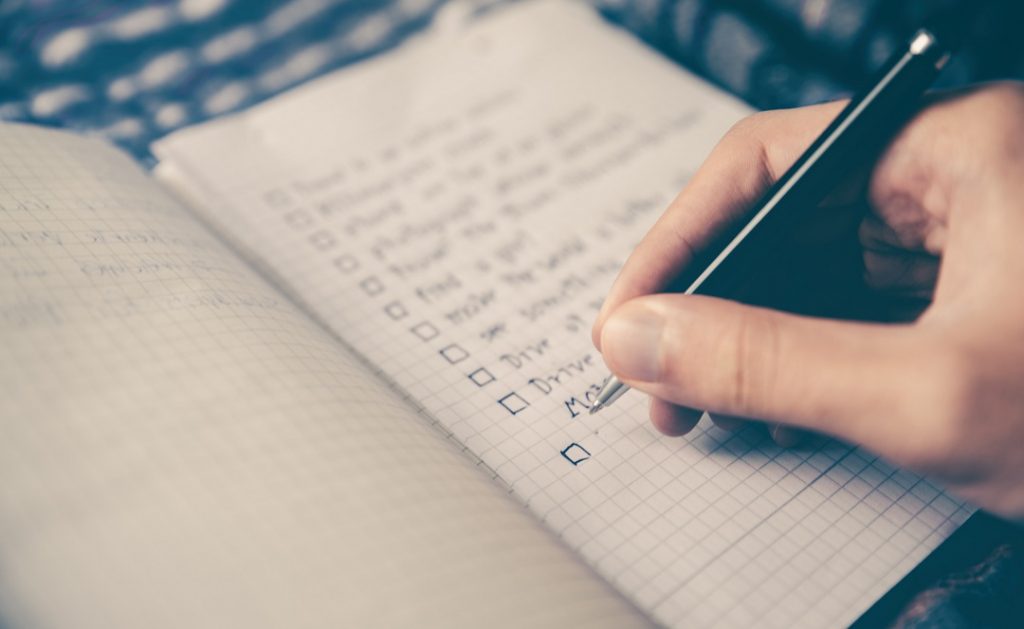Knowing what the strengths of youth are can help you in many ways. It can help you to make more informed choices, set better goals, and achieve greater success both in your personal and professional life. On the flip side, it can also help you understand some of the most common blindspots and weaknesses that people in their youth tend to have.
In this article, we’ll explore the most common strengths of youth and how you can leverage them for personal and professional growth. By understanding your unique strengths through a comprehensive assessment like the HIGH5 Strengths Test, you can make the most informed choices and set better goals aligned with your natural talents. Let’s get right into it.
List of 10 Strengths & Qualities of a Youth
Strong Communication Skills and Interpersonal Skills
Having strong communication is useful in all aspects of life. It’s especially crucial in the workplace where being able to communicate effectively can make a big difference in your career. Generally speaking, people in their youth tend to be better at communication than older people. This is likely because they’ve had less time to develop bad habits and they’re still learning how to communicate effectively.
Interpersonal skills are also important, especially in the workplace. If you can build strong relationships with your coworkers, it will make your job much easier and more enjoyable. Again, these skills can be learned and developed over time. If you’re not naturally good at interpersonal skills, don’t worry – it’s something that you can improve with practice.
Both communication and interpersonal skills are important for success in all areas of life, so if you want to take advantage of your youthfulness, start working on these two areas.
Active Listening
Another strength that is often associated with youth is active listening. This is the ability to pay attention to what someone is saying and understand their perspective. It’s a valuable skill to have in any relationship – whether it’s with a friend, family member, or coworker.
If you want to be a better active listener, there are a few things you can do. First, make sure that you’re paying attention to the other person. It’s easy to get distracted, especially if you’re not interested in what they’re saying.
Try your best to focus on their words and body language. Second, try to understand their perspective. This can be difficult if you don’t agree with them, but it’s important to at least see where they’re coming from.
If you can put yourself in their shoes, it will be much easier to see things from their point of view. Lastly, don’t interrupt. It can be tempting to want to jump in and share your own opinion, but it’s important to let the other person speak.
If you’re constantly interrupting, it will be difficult for them to get their point across. If you can work on these three things, you’ll see a difference in your ability to actively listen. It’s a skill that will benefit you in all areas of your life.
Collaborative
Being collaborative is another strength that is often associated with youthfulness. This means that you’re able to work well with others and contribute to a team effort.
Fortunately, being collaborative is something that can be learned. If you’re not naturally good at working with others, try to take some time to learn more about team dynamics and how to effectively contribute to a team.
You should also try to practice working with others as much as possible. If you can find opportunities to work on group projects or participate in team sports, it will help you develop your collaborative skills.
Adaptability
Another important strength of youth is adaptability. This means that you’re able to quickly adjust to new situations and change course if necessary. It’s a valuable skill to have in today’s world, where things are constantly changing. If you can’t adapt to new situations, it will be difficult to keep up.
If you’re not naturally good at it, try to take some time to learn more about how to adjust to change. You should also try to practice being adaptable as much as possible. If you can find opportunities to try new things and step out of your comfort zone, it will help you develop your ability to adapt.
Engaging and Exciting
One of the great things about youth is that they tend to be very engaging and exciting. They’re always looking for new experiences and are open to trying new things. This can be a great strength in various areas of life. For example, if you can bring an element of excitement to your work, it will make it more enjoyable for everyone involved. If you want to be more engaging and exciting, there are a few things you can do.
First, try to be upbeat. It’s easy to get bogged down in the negative, but if you can focus on the positive, it will be infectious. Second, try to add some fun and excitement to everything you do. This doesn’t mean that you need to turn your work into a party, but try to find ways to make it more enjoyable. If you can find ways to make your work fun, it will be much easier to engage with it.
Lastly, try to be open to new experiences. If you’re always doing the same thing, it can get boring quickly. But if you’re open to trying new things, you’ll never get bored. If you can work on these three things, you’ll find that you’re more engaging and exciting. It’s a great strength to have in both your personal and professional life.
Empathetic
Empathy is a remarkable strength that many youth possess, enabling them to understand and share the feelings of others. This ability to empathize can be a powerful asset, not only in building strong relationships but also in personal and professional settings. By taking the HIGH5 Strengths Test, you can gain insights into your level of empathy and learn how to leverage this strength to connect with others, resolve conflicts, and achieve success in various areas of life.
Pro Tip From HIGH5
If Empathizer is one of your top strengths according to the HIGH5 assessment, consciously practice active listening and perspective-taking in your daily interactions. Make a conscious effort to understand others’ viewpoints, even if you disagree, and validate their feelings before expressing your own opinion.
Patience
Being able to remain calm and level-headed in difficult situations is key. When things get tough, staying patient can be difficult. But if you can manage to do it, it will pay off in the long run. While many believe that they are born without this trait, it can be learned by anyone.
If you want to learn how to be more patient, there are a few things you can do. First, try to take some time to understand the situation and what’s causing the stress. Once you know what’s going on, it will be easier to remain calm. Second, try to take some deep breaths and relax your body. This will help you stay in control of your emotions.
Never Stop Learning
If you want to never stop learning, there are a few things you can do. With so many resources available, there’s no excuse not to be constantly learning. Finding time to read every day or watch videos that teach you new things can help you stay on top of your game.
Additionally, try to find mentors who can teach you new things. If you can find someone willing to share their knowledge with you, it will be invaluable. Also, try to never stop learning about yourself. Self-awareness is key to personal and professional success. If you can understand your strengths and weaknesses, you’ll be in a much better position to improve upon them.
If you work on these things, you’ll find that you’re always learning new things. It’s a great strength to have in both your personal and professional life.
Organizational Abilities
Being organized is another important strength that youth tend to have. This means that you’re able to keep track of things and make sure that everything is in its proper place. An organized person can get more work done and ensure deadlines are met.
Small steps can go a long way when it comes to staying organized. Something as simple as creating a to-do list can help you stay on track. You should also try to create a system for organizing your work.
This could involve using a specific folder for each project or using a certain color code for different types of tasks. If you can work on these things, you’ll find that you’re much more organized. It’s a great strength to have in both your personal and professional life.
Passion for Learning
A passion for learning and exploring new avenues is a defining strength of youth. Their fearlessness in venturing into unfamiliar territories and taking calculated risks can pave the way for great accomplishments later in life. By understanding your unique strengths through the HIGH5 Strengths Test, you can identify areas where your natural curiosity and zeal for learning can be best channeled, enabling you to pursue your passions more effectively and achieve remarkable feats.
Pro Tip From HIGH5
Leverage your love for learning by setting specific goals aligned with your strengths identified by the HIGH5 test. Seek out resources, mentors, or experiences that can help you deepen your knowledge and skills in those areas, continuously challenging yourself to grow.
How to Identify and Improve the Strengths of a Youth
While asking youth themselves or seeking input from others can provide insight into their strengths, a more comprehensive and scientifically validated approach is to use a strengths assessment like the HIGH5 Strengths Test. This assessment identifies your unique combination of strengths, providing a solid foundation for personal and professional development. By understanding your true strengths, you can make more informed decisions, set achievable goals, and ultimately lead a more fulfilling life.
Once you have an idea of what the youth’s strengths are, you can work on helping them to develop and improve these strengths. This may involve providing opportunities for the youth to engage in activities that allow them to use their strengths or providing feedback and encouragement to help them continue developing these areas of their lives.
Moreover, it is important to remember that every youth is different and will have unique strengths. It is important to encourage the youth to pursue their interests and goals, and to help them find ways to succeed that work best for them. The same advice applies if you’re reading this guide as a youth trying to better your life.
Pro Tip From HIGH5
After taking the HIGH5 Strengths Test, sit down with the youth and discuss their results together. Encourage them to share their thoughts and perspectives on their identified strengths, and collaboratively develop a plan to nurture and apply those strengths in various aspects of their life.
How to Improve Weaknesses Into Strengths of a Youth?
While providing opportunities for learning and growth through experiences like summer camps and after-school programs can be valuable, a more targeted approach is to first understand one’s unique strengths and areas for improvement. The HIGH5 Strengths Test offers this invaluable insight, identifying both inherent strengths and potential blindspots. With this knowledge, youth can then actively seek opportunities that allow them to enhance their strengths while simultaneously working on areas that need improvement, ultimately facilitating well-rounded personal and professional development.
Additionally, it is important to encourage them and praise their accomplishments, no matter how small they may seem. This will help boost their confidence and motivate them to continue working hard. Finally, it is essential to be there for them when they need support and guidance; this can make a big difference in their ability to overcome challenges and succeed.
Pro Tip From HIGH5
After identifying areas for improvement through the HIGH5 assessment, create a development plan focused on turning those weaknesses into strengths. Set realistic, achievable goals and seek out opportunities, resources, or mentors that can help you make tangible progress in those areas.
What are the Weaknesses of a Youth?
Weaknesses of youth can include inexperience, immaturity, and lack of knowledge. Youth may also be susceptible to peer pressure and making poor decisions. Additionally, youth may be impulsive and have difficulty thinking long-term.
Diving deeper into these weaknesses, here’s some more detail about each one:
- Inexperience: One of the biggest weaknesses of youth is their lack of experience. They haven’t had the time to learn from their mistakes and grow as an individual. Additionally, they may not have the skills or knowledge needed to make informed decisions.
- Immaturity: Another weakness of youth is immaturity. This can manifest itself in various ways, such as acting impulsively, making poor decisions, or being influenced by peer pressure. Additionally, youth may have difficulty controlling their emotions and reactions to certain situations.
- Lack of knowledge: The third weakness of youth is lack of knowledge. They may not know about certain topics or issues, which can lead to them making poor decisions. Additionally, they may not have the experience or skills needed to make informed choices.
- Poor decision-making: Poor decision-making can lead to negative consequences, such as getting into trouble with the law or engaging in risky behaviors.
How to Highlight the Strengths of a Youth in School?
In school, many youths find themselves in a box. They’re told to be quiet, to sit still, and to raise their hands if they have something to say. This can be very stifling for a youth’s natural strengths. So how can we help them break out of the box and truly shine? First, it’s important to understand that each youth is unique and has its strengths. Some youths are very creative, while others are natural leaders.
It’s important to identify and encourage these strengths in each youth. One way to do this is to create opportunities for them to use their strengths. For example, if a youth is creative, you might give them an assignment that allows them to be expressive and use their imagination.
If a youth is a natural leader, you might put them in charge of a group project. Another way to encourage youths’ strengths is through positive reinforcement. When you see youth positively using their strength, make sure to let them know that you noticed and that you appreciate it.
This will help them feel good about themselves and encourage them to continue using their strengths. It’s also important to provide support for youths when they’re struggling. This might mean offering additional help or guidance when they’re having trouble with a task.
It can also mean simply being there for them as a listening ear when they need to talk. By understanding and encouraging the strengths of each youth, you can help them break out of the box and reach their full potential.













![How to Build Habits in 2022 [Complete Guide]](https://high5test.com/wp-content/uploads/2022/01/How-to-Build-Habits-in-2022-Complete-Guide-300x188.jpg)
